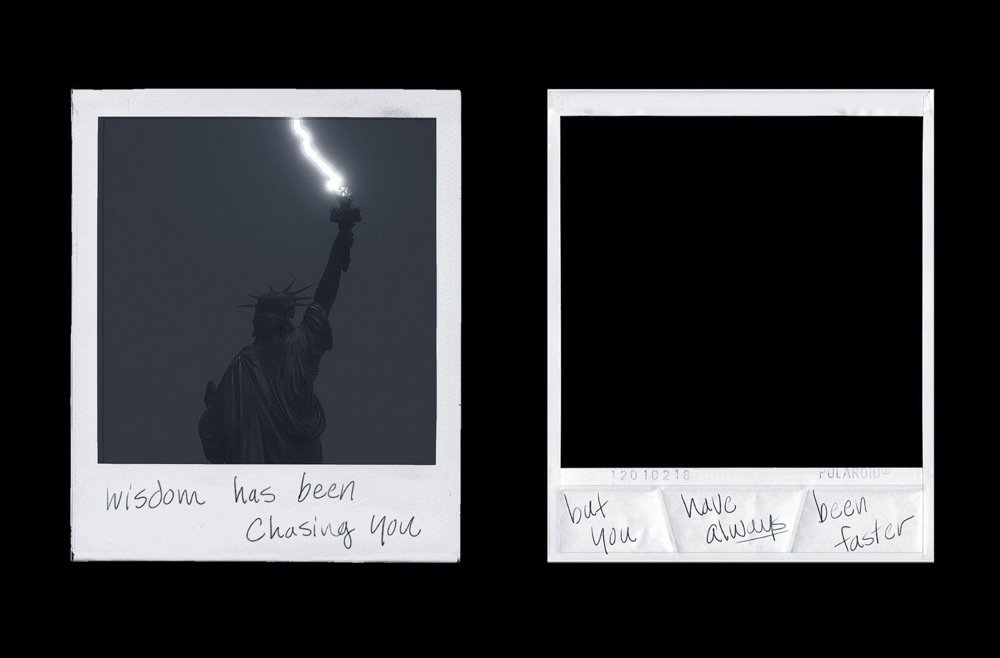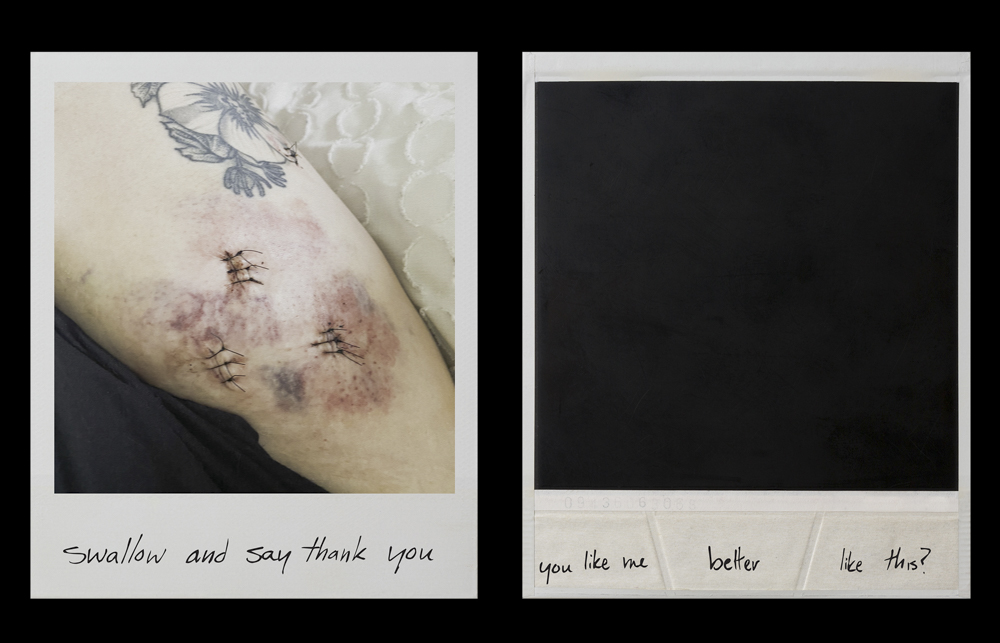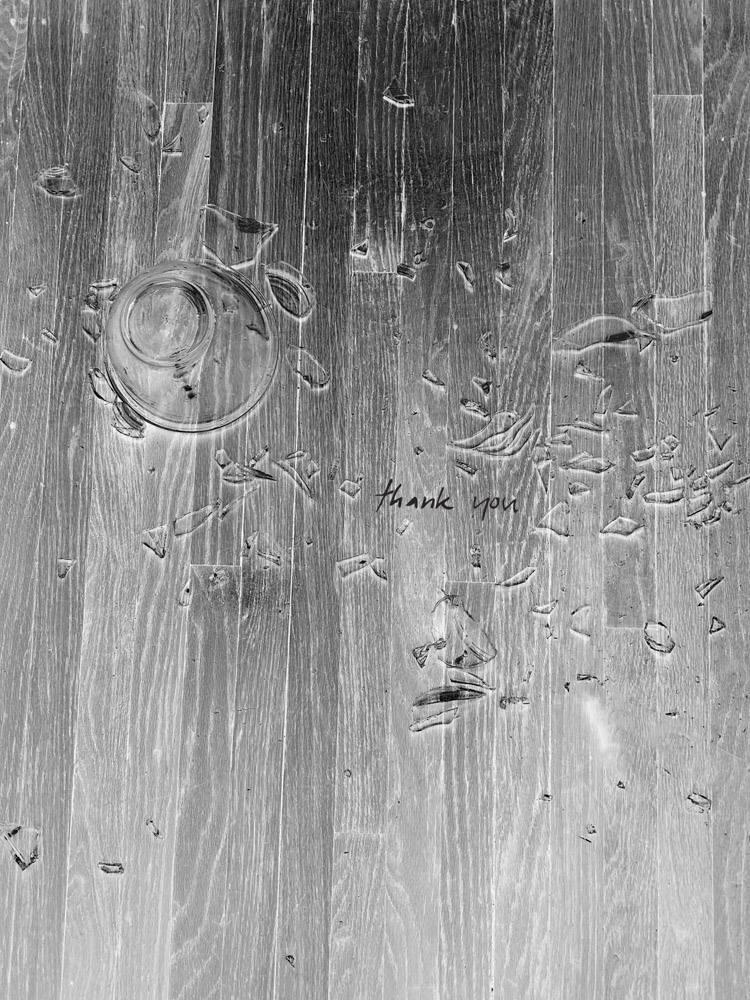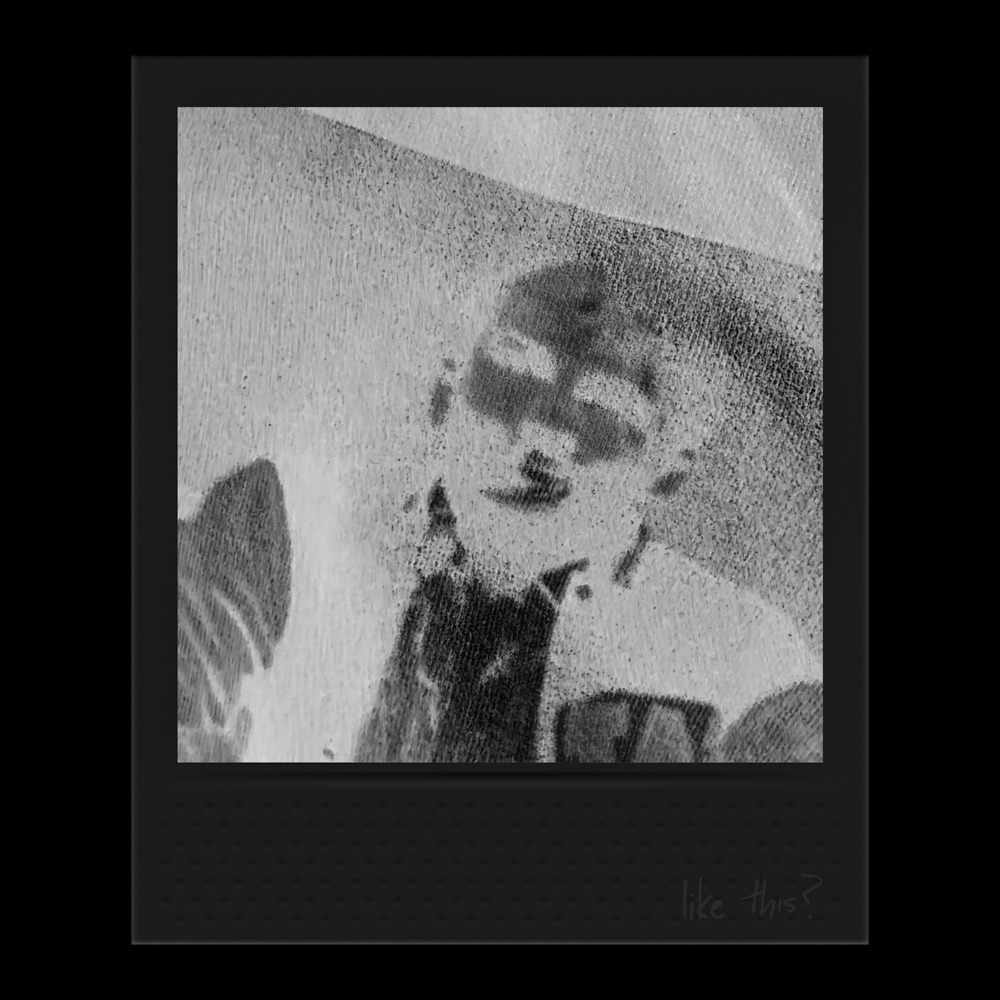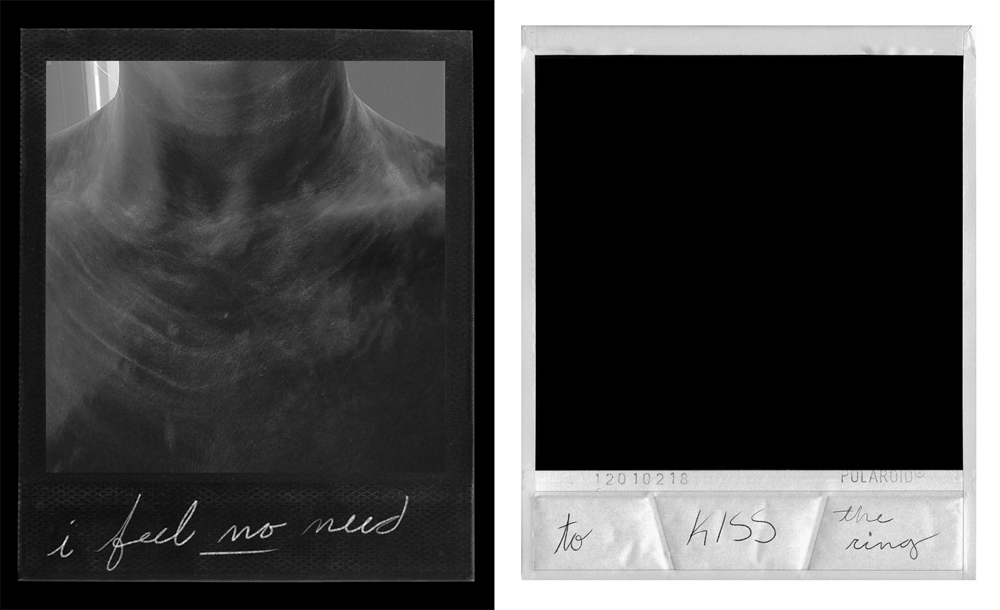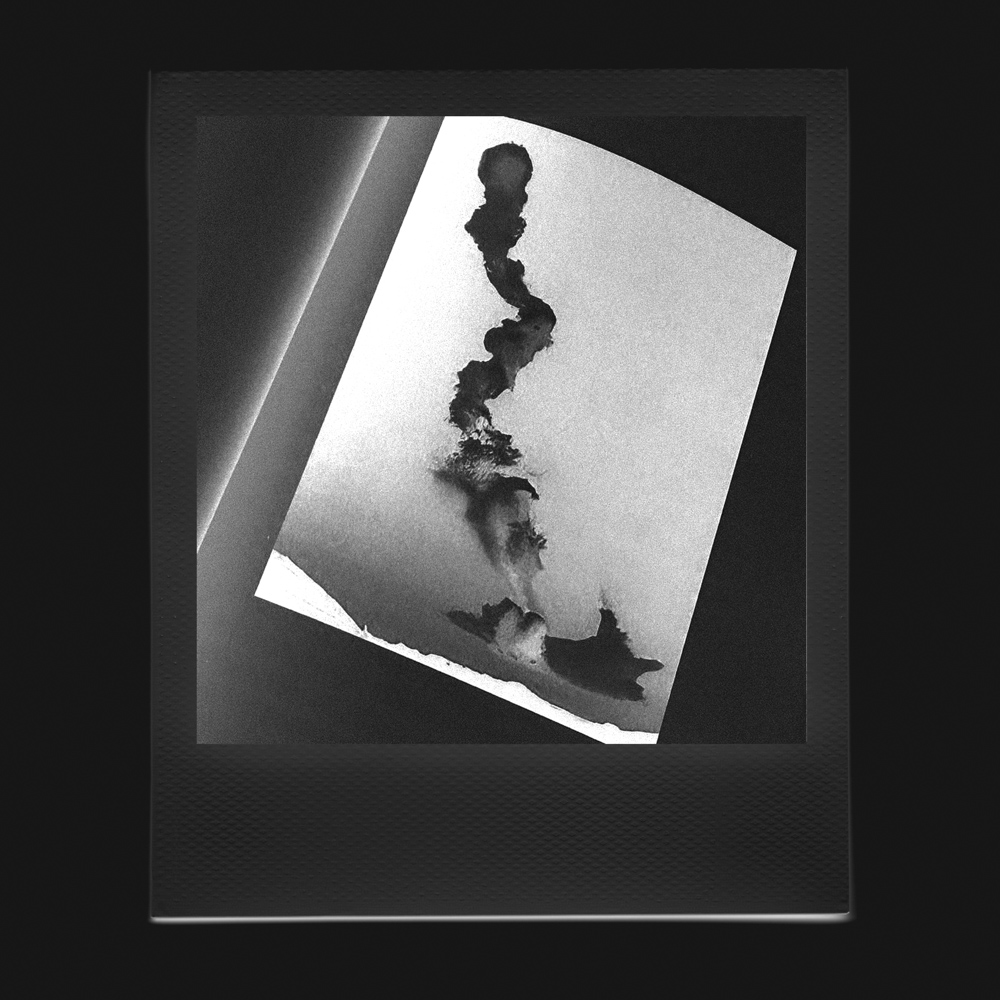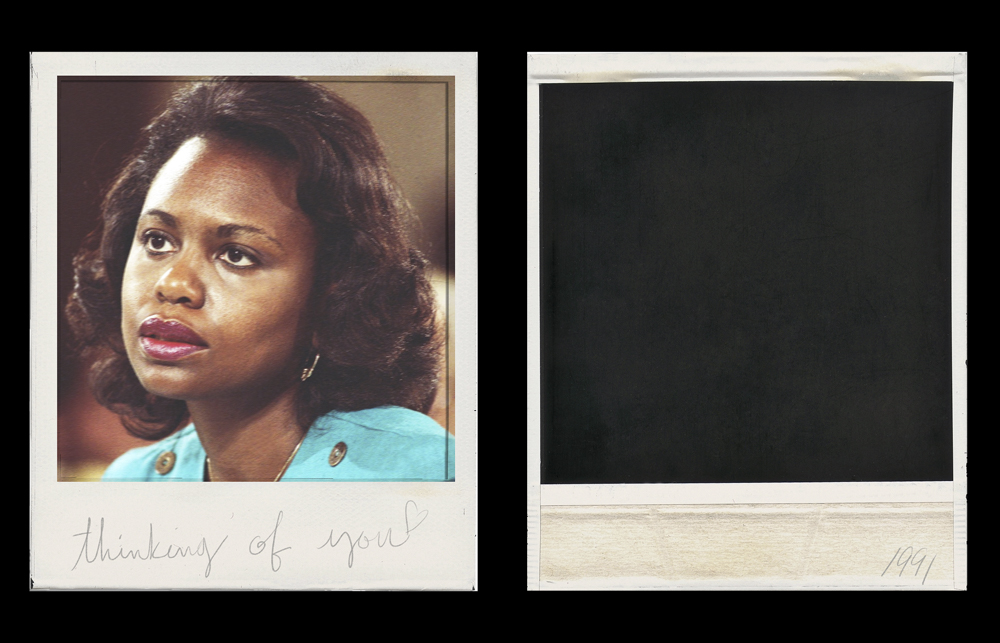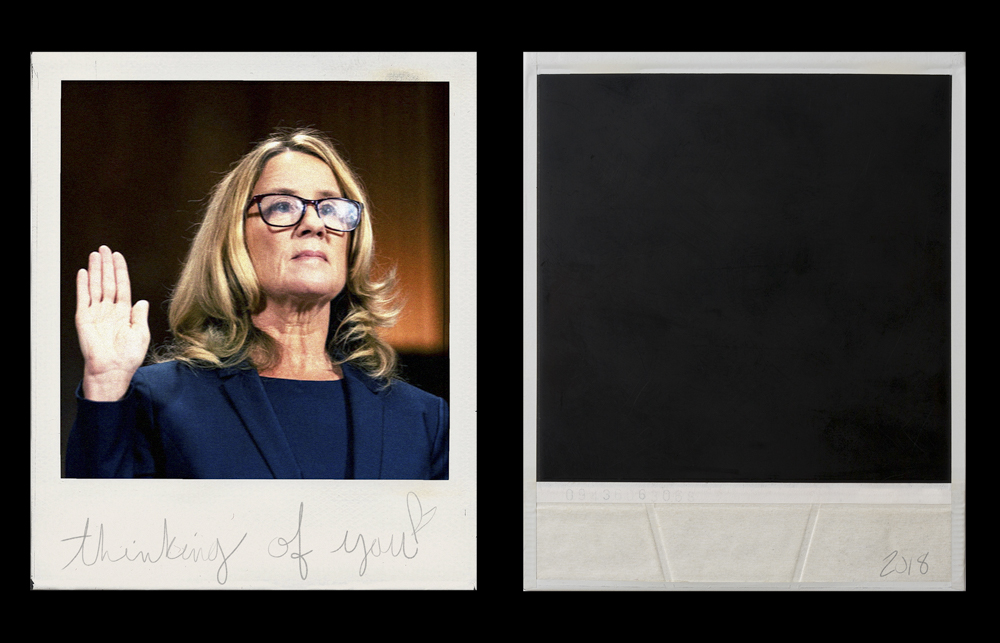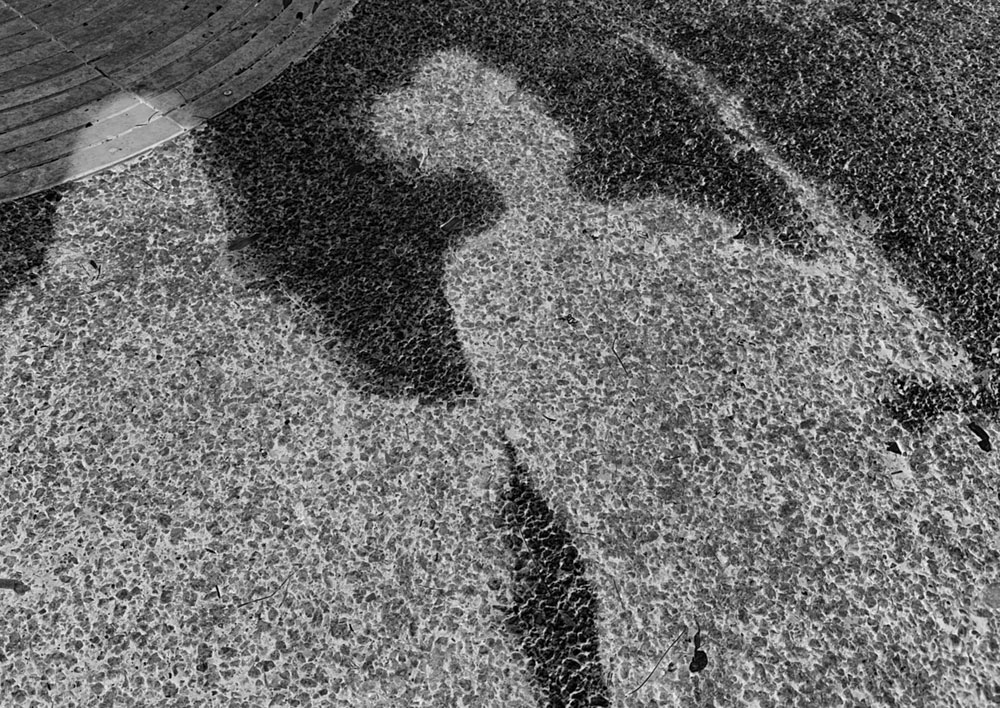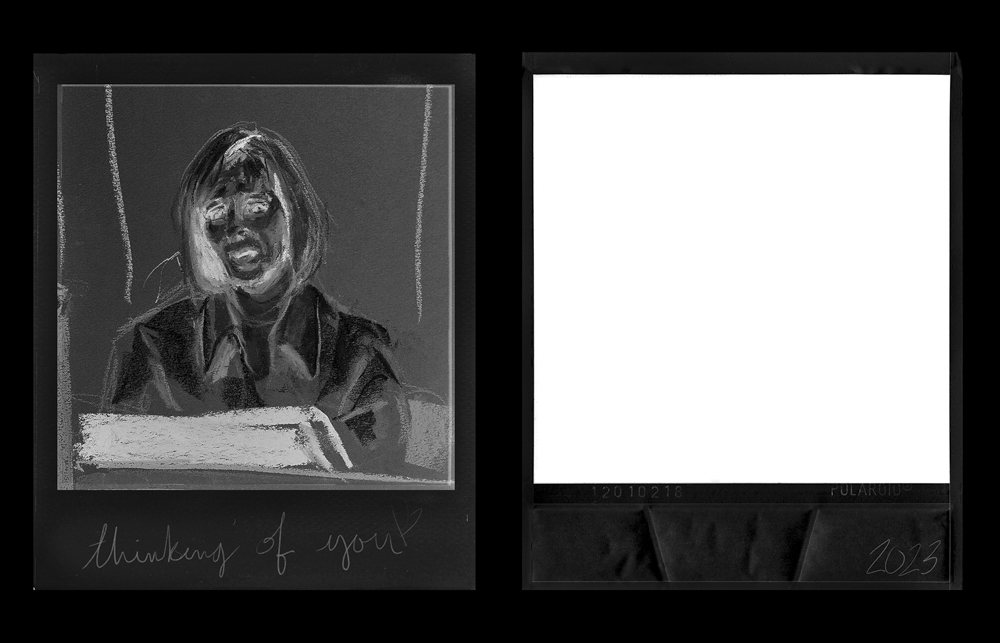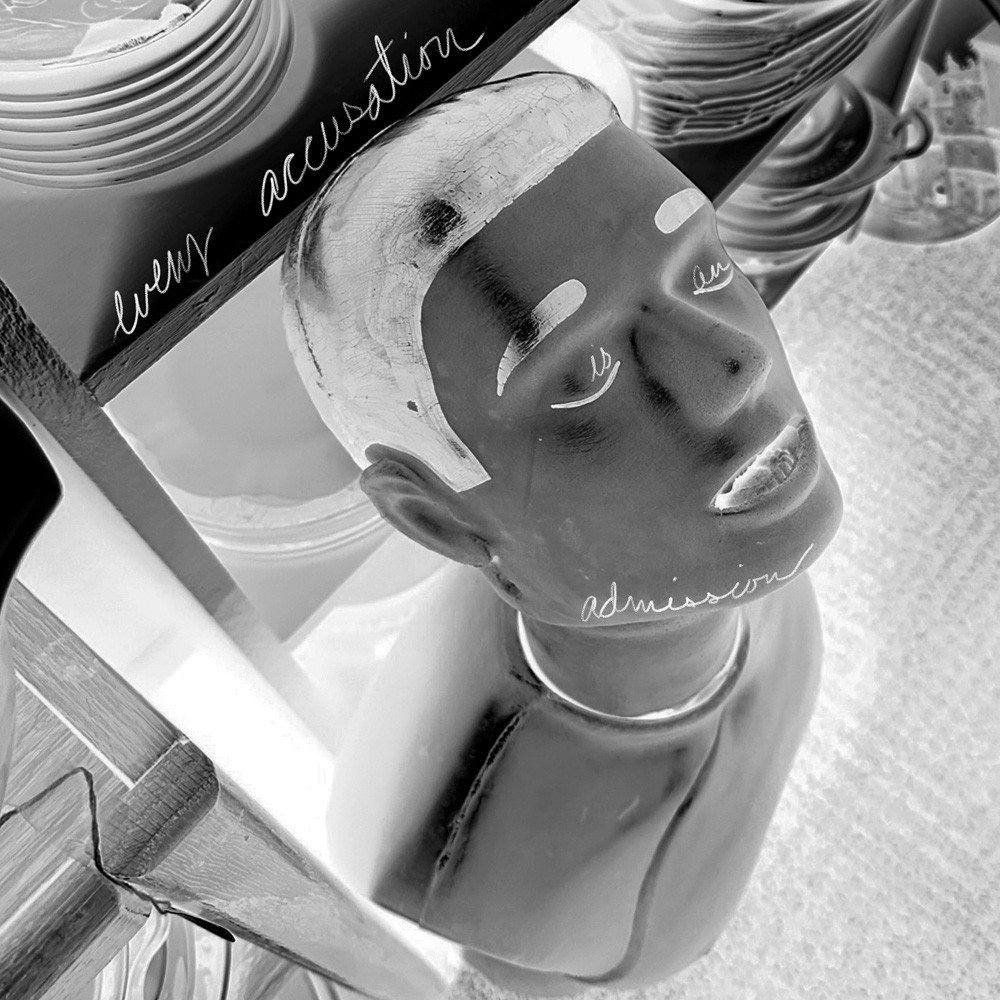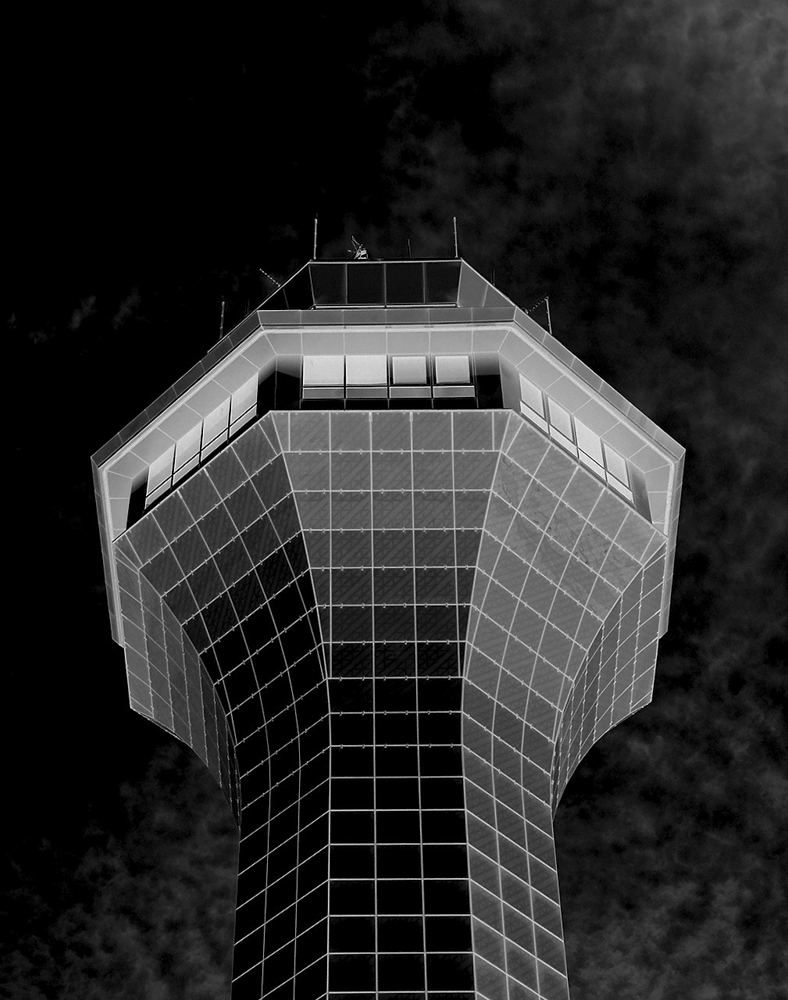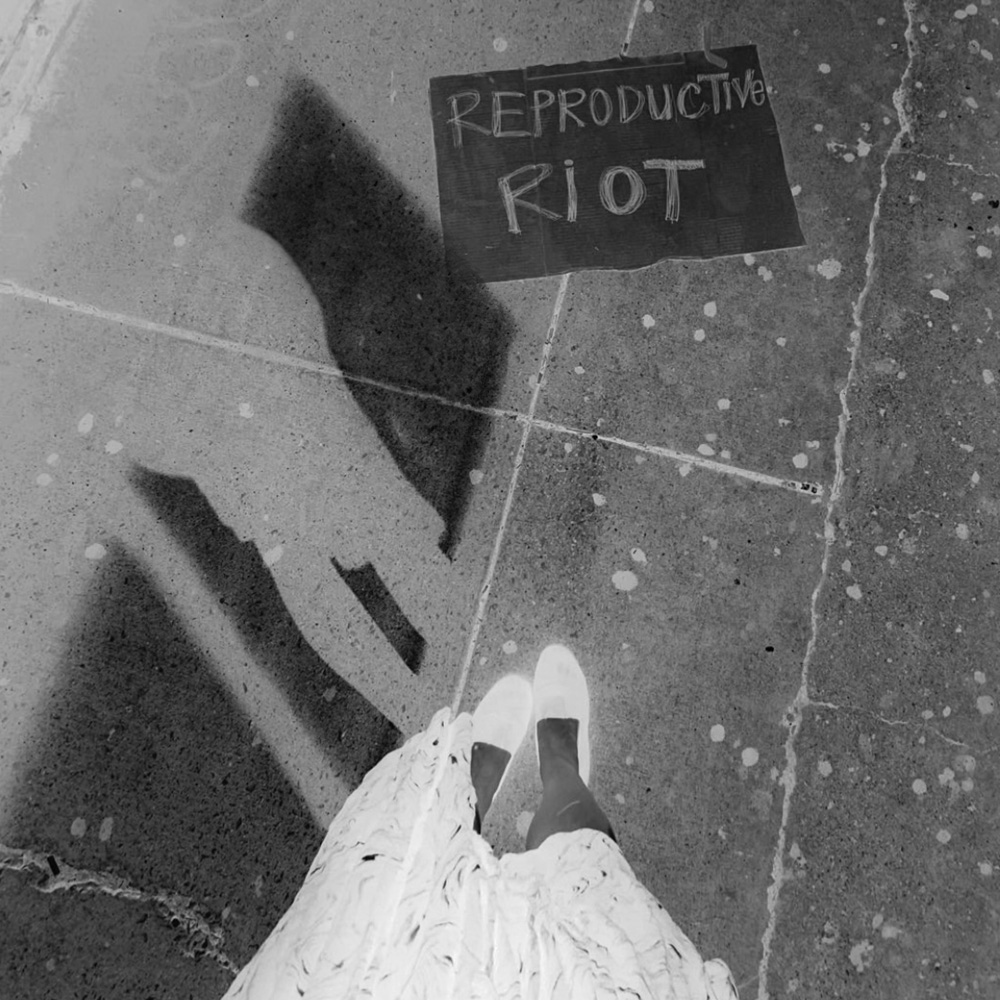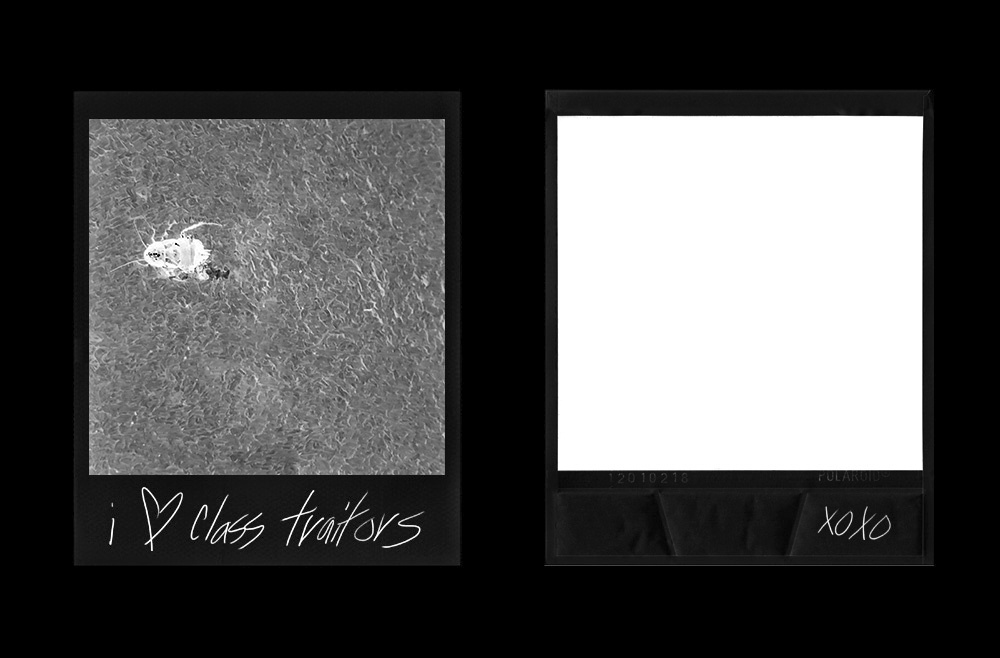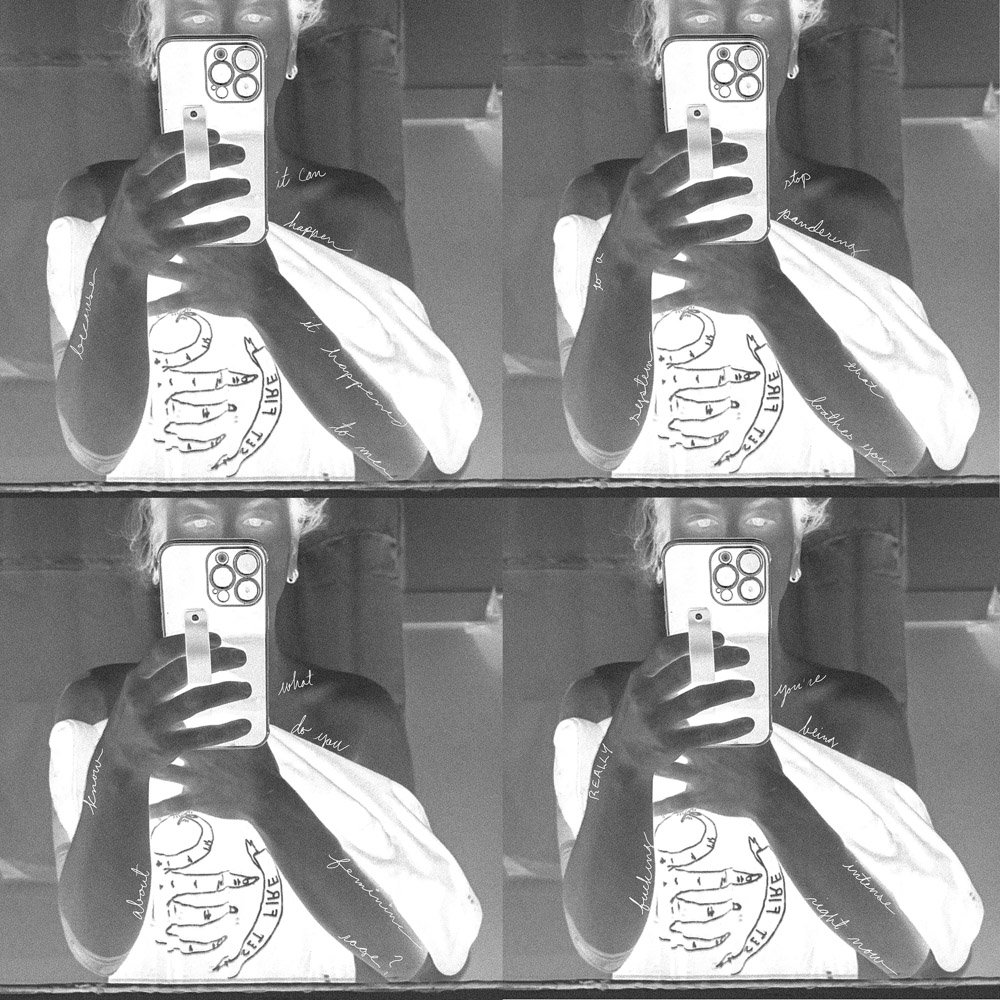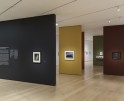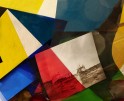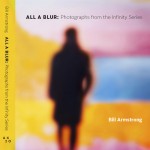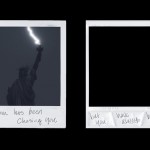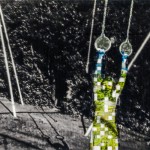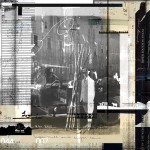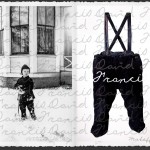Melissa Grace Kreider: i will bite the hand that feeds
This week, we will be exploring projects inspired by memory, place, and/or intimacy. Today, we’ll be looking at Melissa Kreider’s series i will bite the hand that feeds.
cw; gender violence, assault
I’ve been enamored by Melissa Grace Kreider’s work when I first became familiar with her through Don’t Smile. Melissa is an artist who has dedicated their life to raising awareness of gendered violence. While so many of us have endured or experienced gendered violence in some form, Melissa balances the emotional and objective viewpoints through her work. In Remnants, she brings the everyday into domestic violent situations, reminding us that it can happen anywhere. If you are unfamiliar with her work, I recommend viewing Remnants, a newspaper with images and research on the realities of sexual and domestic assault, specifically for elected officials. She sheds light on the political implications and systemic issues at play while giving her viewers a call to action. As heavy as the commentary on these issues is, I always come away from Melissa’s work feeling hopeful and optimistic through her use of imagery in education. Her recent series, i will bite the hand that feeds, continues these explorations.
Melissa Grace Kreider will be participating in an upcoming group exhibition surrounding mental health, investigating the historical Dunning Asylum and honoring its former inmates at the Center for Mad Culture in downtown Chicago in November 2024. Please visit madculture.org/exhibitions for more information.
Melissa will be hosting a new, free, virtual monthly lecture series through Don’t Smile. For more information and to register for September’s lecture with artist Amanda Mollindo, visit dont-smile.com.
i will bite the hand that feeds
i will bite the hand that feeds is created in response to navigating rage, misogyny, queer womanhood, and questions if capitalism and patriarchy will crush us.
i will bite the hand that feeds is a manifestation of the dots i’ve been connecting between my lived experiences as a survivor of sexual assault, workplace culture, those that allow me to photograph them, the concept of “justice” in the united states, punishment, power and those who wield it, and how pop culture and media handling on topics of assault affects us on a global scale as well as every facet of our lives.
Epiphany Knedler: How did your project come about?
Melissa Grace Kreider: i will bite the hand that feeds began early this year as a response to what I’ve witnessed as I doggedly produce another body of work, titled Worthy, about survivors of gendered violence. These survivors are overwhelmingly mistreated by the United States’ carceral and justice system when they are forced to come in contact with it.
I created a space in my Notes app in the Spring of 2023 when producing Worthy, where I began writing phrases or questions that were coming to mind as I attended and photographed the first, of many, court trials. A pregnant woman killed her abuser in self-defense during a life or death altercation in 2019, and she was facing charges of first-degree murder and life in prison for standing her ground. The subsequent experiences I had in courtrooms and prisons that are colored by my own personal experience as a survivor of assault, in addition to the abundance of misogyny in my life, resulted in many of the handwritten phrases and titles I deploy within the work.
i will bite the hand that feeds is born from a need to confront those that perpetuate violence, and connect the dots between them and the culture of silence (in which naming the crime becomes the crime) that defends systems which hurt myself and my community under the guise of assistance or “justice.” White supremacy, patriarchy, and capitalism are the massive systems that wield power at the heart of a majority of the struggles survivors of intimate partner violence endure. On a global level, they are also responsible for unfettered genocide, greed, and climate change. They’re all connected to the same root, bolstered by the lack of imagination and unwillingness to do better by those who are in the position to do so.
In this series, I pay homage to survivors that came before me, pull from internet culture, historic and current events, books I’m reading, and my refusal to fall in line with the culture of silence I’ve both borne witness to and been victim of, with my own writing-as-practice and a dash of self-aware sarcasm and levity. If I have to participate in some of these systems to survive, it will not keep me from being critical of them, and continuing to speak plainly about them with clear eyes. I will bite the hand that feeds.
EK: What relationship does memory/intimacy/trauma play within your practice, and does photography become a way to navigate these complex topics?
MGK: All three are centered within my practice of making and researching. The collective memory in our culture is short. I’m constantly consuming words of wisdom and accounts from those in history that have put themselves on the line to speak publicly about the abuses they’ve experienced, against all odds.
I know intimately that to do so risks your safety, your reputation, your community, your friends, your family, your job. I keep these people at the front of my mind, which is what led to the trio of pieces in this work honoring Anita Hill, Christine Blasey-Ford, and Jean Carroll. These women were broadcasted nationally as they reported intimate abuses by incredibly powerful men (who have all committed egregious human rights violations during and since), but never wavered in their mission to tell the truth. Even when disbelieved and shamed by the media at large, by people who have never met them. And yet, their warnings weren’t heeded.
All three whistleblowers have spoken at length about losing their safety and communities through the process of reporting. Retaliation and shame is something every survivor forcibly handed a life with long-lasting trauma, including myself, has experienced – whether we’ve been lambasted on public television or not. It feels important to honor them through making this work, to continue reminding people through these pieces that survivors have been here through history, trying to warn the general public about real danger at great risk to themselves. It is often unpopular and difficult to advocate for yourself and others, and though I don’t personally know these people, their treatment and bravery ties into the broader themes of the work.
All this to say – keeping these figures in my memory, writing “thinking of you <3” on their polaroids as an intimate callback to Barbara Kruger’s piece of the same name is a way to honor others’ trauma and feel inspired to continue.
The pieces in i will bite the hand that feeds begin as digital collages, and if they’re successful, I create them off-screen. I dismantle old polaroids that I purchase off of eBay with the utmost gentleness and care to then reconstruct the polaroid frame with my own images and handwriting with various bookbinding tools at my disposal.
EK: Is there a specific image that is your favorite or particularly meaningful to this series?
MGK: Two pieces really set the stage and sum up i will bite the hand that feeds and illustrate the push and pull between the personal and political that are at play within the work.
The first piece I made for the series, swallow & say thank you, served as the springboard for the series and anchors the personal meaning of the work.
Upon finally experiencing my “last straw” moment at my most recent place of work and deciding to move on to better things (I quit), I experienced intense retaliation for leaving. I spent my employment there inundated with daily displays of gaslighting and misogyny from all levels. I have developed a thick skin for this behavior, and take it as par for the course of working in academia as a qualified woman of any age, especially in the field of photography, but still maintain my professionalism. I was making well below the poverty level while working at this higher education arts institution in the city of Chicago and barely able to meet my basic needs, so the response to my quitting was weird to me.
Workers deserve a living wage, and we deserve respect. It is that simple – and they are not mutually exclusive, but I wasn’t receiving either.
The retaliation reminded me that a majority of employers would prefer us to be debilitated and needy, grateful to be included, regardless of the way that we’re treated in the face of our dedication. I believed, and was told in my youth, that the culture of misogyny in the workplace enabled by those of all genders and identities would be over by the time I finished schooling. And yet wherever I go, there it is. As old as the tale of time – boring, unimaginative, and predictable – but just as pervasive.
In response, I created swallow & say thank you, a reminder to myself of all the times I had to “grin and bear it” in face-to-face interactions with people who definitely don’t know what’s going on, but reign supreme in the power they hold. Most femmes I know have this practice of “dealing with it” memorized and can perform it spectacularly out of necessity at the drop of a hat. I’m no different.
I used an image of my stitches and bruised surgical site from a 2021 procedure (that was for the greater good) that rendered me unable to walk for six weeks afterward, writing “you like me better like this?” on the back. A question for my employer and the world as a whole. Many of the pieces function as a call and response to the viewer, and directly address torch-carriers of capitalism and patriarchy.
In this vein, a.l. (an american liability), encapsulates the covert way in which I must weave the personal with political. This piece appropriates a screenshot I took of a video made by AccuWeather’s Dan Martland on April 5th, 2024 of the Statue of Liberty being struck by lightning, paired with “wisdom has been chasing you, but you have always been faster.”
Given what I’ve witnessed in the past year and a half while producing Worthy, this is a phrase that comes to mind each time I think about the state of the U.S. and also the person responsible for my last straw moment in the workplace. I used their initials in the title as they encapsulate so many of the diabolical values the United States upholds – laziness, misogyny, inability to change, and a lack of imagination for something different or better. I gifted it to them, and many other colleagues, in the last department portfolio exchange box I was included in. <3
EK: Can you tell us about your artistic practice?
MGK: My trauma-informed art practice is devoted to examining, on a micro and macro level, the systems in place to help or harm victims of sexual and domestic assault. It is driven by love and compassion for the community of survivors in which I find home , but is set in stone by my absolute and undying refusal to fall in line to the culture of silence surrounding these topics. What can I say? I’m a Taurus sun and moon placement. Leo rising.
What that looks like in practice is putting the comfort and safety of myself and the people in my work at the utmost priority. Myself, and the communities I work with, have experienced deep, life-altering trauma that is centered in the process of being photographed and perceived in the context of it. This trauma is exacerbated by the systems whose undertow we’ve been caught in, and I put that at the forefront of my mind while stepping into any artmaking situation with those who are putting their comfort on the line to sit with me. I respect it deeply.
Photography has a long, sordid, active history of being a tool for exploitation and discomfort and I deploy all the tools I have in my kit – years of personal experience and training with working with traumatized individuals – to fight against allowing exploitation to seep into my artistic practice and work. Making this work is not my full-time job, so that often looks like taking mental health-related breaks that can last days or weeks. This slows down my ability to produce the work quickly, but resting allows me to show up and be completely present when I’m photographing.
To make ethical, respectful work of those that participate in the process of shining a light on all of this has been a constant renegotiation of my artistic practice. The means of producing the work are ever-changing, but my core values are centered in every instance.
EK: What’s next for you?
MGK: I’m hard at work at resolving the previously mentioned work, Worthy, about families who have lost loved ones to intimate partner violence and those that have been incarcerated for killing their abusers in self-defense. As you can imagine, it’s work that requires an immense amount of time and resources to produce, and resolve in a way that honors the participants in the project. I’m currently working with hundreds of images to pull it all together while continuing to create Worthy, as these cases are abundant. Meanwhile, I continue to travel to more families to work with. I hope I can start showing it in its entirety soon.
I’m also starting a new, free, monthly, virtual lecture series through Don’t Smile, a platform devoted to showcasing excellency in photography by femmes and queer folks. It’s one of my favorite projects I’ve ever done but I take many breaks from, and I’m feeling invigorated being back at it.
Epiphany Knedler is an interdisciplinary artist + educator exploring the ways we engage with history. She graduated from the University of South Dakota with a BFA in Studio Art and a BA in Political Science and completed her MFA in Studio Art at East Carolina University. She is based in Aberdeen, South Dakota, serving as a Lecturer of Art and the co-curator for the art collective Midwest Nice Art. Her work has been exhibited in the New York Times, Vermont Center for Photography, Lenscratch, Dek Unu Arts, and awarded through the Lucie Foundation, F-Stop Magazine, and Photolucida Critical Mass.
Follow Epiphany on Instagram: @epiphanysk
Posts on Lenscratch may not be reproduced without the permission of the Lenscratch staff and the photographer.
Recommended
-
Time Travelers: Photographs from the Gayle Greenhill Collection at MOMADecember 28th, 2025
-
Photography Educator: Juan OrrantiaDecember 19th, 2025
-
Bill Armstrong: All A Blur: Photographs from the Infinity SeriesNovember 17th, 2025
-
Rebecca Sexton Larson: The PorchApril 28th, 2025
-
Matthew Cronin: DwellingApril 9th, 2025

